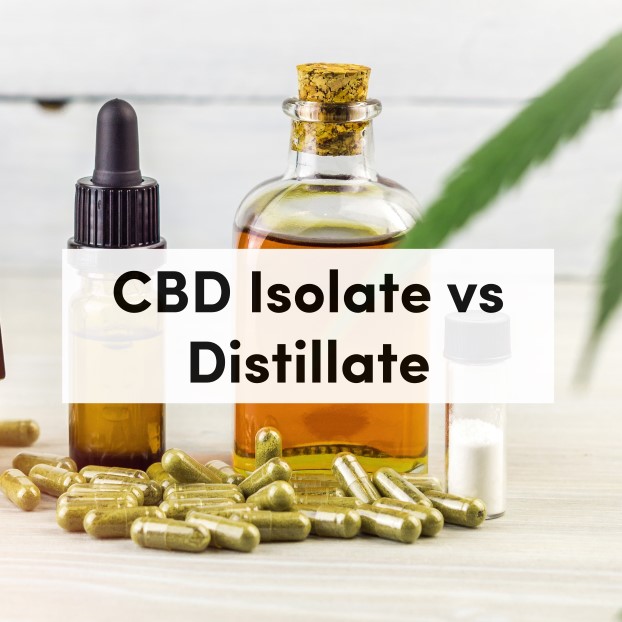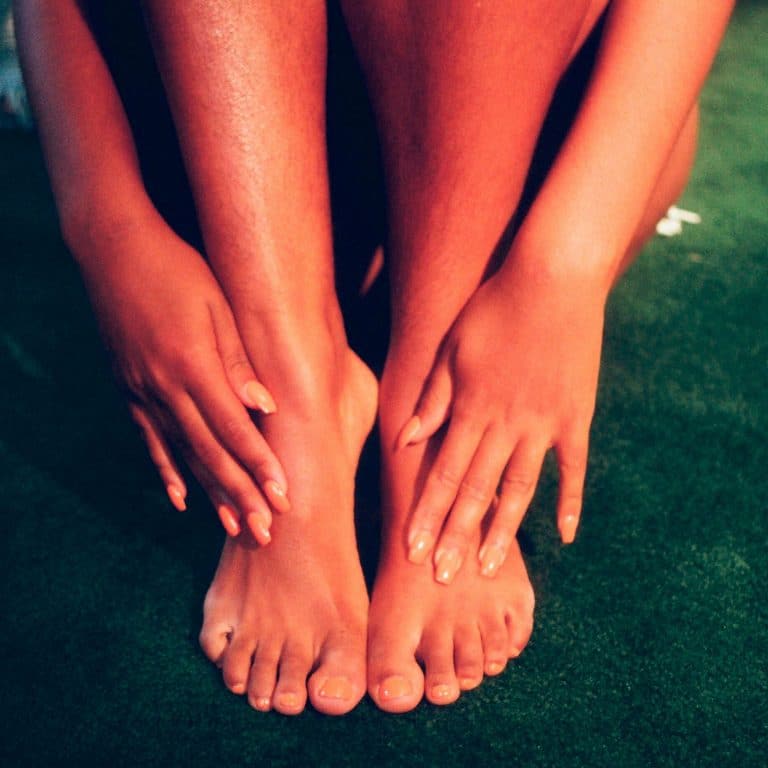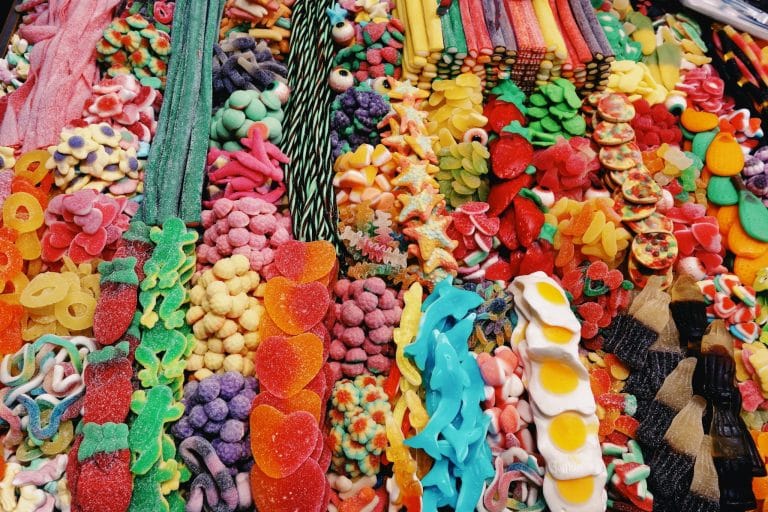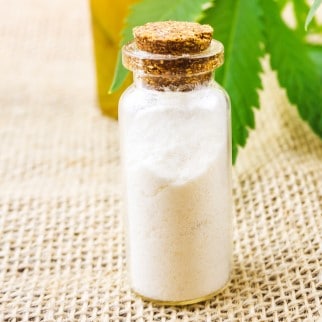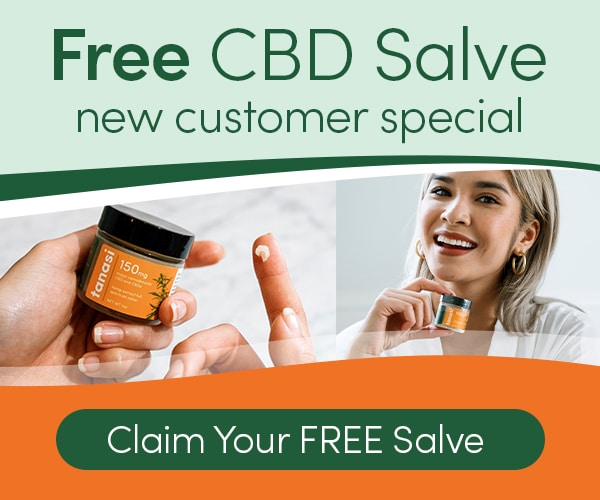Is Too Much CBD Something You Should Be Worried About?

Posted on May 28th, 2021
CBD seems to be a trendy topic throughout the country ever since the Farm Bill of 2018 removed the federal ban on hemp. Many people everywhere are now discovering a range of its advantages. You can walk into almost every store and get some kind of a CBD product. These products also provide their users with an endless way to use them. You could infuse it in your favorite snacks, rub it into the skin, vape it, smoke it, drink it, eat it, and even offer it to your pets. Generally speaking, CBD products are so easy to get that you may wonder if there is such a thing as too much CBD. And what happens if you deliberately (or accidentally) consume too much CBD? Is it possible to overdose? This post will help you understand CBD’s effects, how much is too much CBD, and ways to prevent that.
What is CBD?
Cannabidiol (CBD) is a natural cannabinoid present in both main cannabis (hemp and marijuana) plants. The primary difference between hemp and marijuana is that the former lacks an adequate amount of THC to get you high. Remember, THC is the compound that’s well-known to leave its users feeling “high.”
Just like THC, CBD interacts with cannabinoid receptors all over the body to stimulate the endocannabinoid system (ECS). The ECS influences a wide range of physical and mental functions, such as memory, pain, appetite, mood, sleep, stress, reproductive function, immune function, and metabolism.
When it comes to the legality of CBD products, the US government has legalized industrial hemp, and products that come from it. However, it doesn’t necessarily approve of all CBD. The legal gray area is even more confusing since some state laws may either legalize it completely or ban it altogether. The federal law states that if the plant contains 0.3% THC or less, it is hemp and it is legal. And if CBD comes from that plant, it too is legal.
 Effects of CBD
Effects of CBD
There is little evidence when it comes to CBD’s mechanism of action. CBD has a much lower affinity for the brain’s cannabinoid receptors as opposed to its cousin (THC). Cannabinoid receptors are basically what THC binds to induce its psychoactive effects.
Furthermore, CBD may even activate other receptors. For example, opioid receptors that manage pain, as well as glycine receptors that primarily deal with regulating the “feel-good” hormone serotonin. Proponents report that CBD oil may help manage a wide array of health disorders. These include anorexia, glaucoma, chronic pain, acne, drug addiction and withdrawal, Parkinson’s disease, epilepsy, muscle spasms, depression, high blood pressure, anxiety, and even insomnia.
Where Does CBD Come From?
Primarily, cannabidiol has mostly been popular as a safe natural remedy for a long time because of its antispasmodic, anti-inflammatory, and anti-oxidative qualities. The most important distinction from THC to remember is that CBD will not induce psychoactive side effects.
Furthermore, it is a compound present throughout various parts of the cannabis plant. Most CBD concerns arise from the confusion between hemp, cannabis, and marijuana. Both hemp and marijuana are cannabis species. However, marijuana is intended to have high THC levels. And THC is the substance that brings legal ramifications.
As you might already know, CBD’s source is hemp that consists of 0.3% THC or below. Lawmakers consider this a negligible level that can’t induce a “high”.
Furthermore, many people incorrectly use hemp oil and CBD oil interchangeably. Hemp oil may be hemp seed oil, or it may be a full-spectrum extract. CBD oil is most likely a product containing CBD and some carrier oil.
Hemp vs Marijuana
Apart from knowing what CBD is, and its actual source, you also need to know the real distinction between hemp plants and marijuana. Both belong to the genus Cannabis, but they have many differences.
 Hemp
Hemp
To reiterate, CBD oils and hemp oils are usually both from the same plant. Hemp is generally a Cannabis sativa subspecies that’s bred for its leaves, fiber, and seeds. Hemp shares a similarity with marijuana in that it comprises an array of cannabinoids. Nevertheless, these cannabinoids aren’t intoxicating.
Besides CBD extraction, hemp consists of endless other applications. You might utilize hemp fibers to create textiles, paper, rope, etc. Farmers now cultivate hemp to comprise substantial CBD quantities that they can apply to create CBD oil and a variety of CBD products.
Marijuana
Marijuana must be what pops into your mind anytime someone mentions cannabis to you. Indeed, it is a popular recreational psychoactive drug. In general, this plant is controversial. However, its medical and recreational applications are constantly increasing globally. Typically, the Cannabis indica and C. sativa are the two main cannabis species of marijuana.
As you’ve learned, marijuana is sometimes effective for medical reasons, but it is mostly applied for the recreational reasons of becoming “high”. This is mainly because marijuana contains high levels of THC. Meanwhile, hemp only comprises small THC traces (0.3%).
Marijuana also shares a similarity with hemp in that it is intended to comprise certain cannabinoid percentages. Hemp growers tend to maximize CBD, while marijuana growers mostly handle potent high THC strains. Medical marijuana might be legal, but most states still strictly monitor its growth and sale.
Will CBD Get You High?
After extraction, manufacturers combine cannabidiol into a host of products, including lotions, tinctures, and oils. In general, CBD oil is one of the most common CBD products. You can either take it underneath the tongue (sublingually) or even infuse it in drinks, vape pens, or food.
Some products claim to be a natural remedy to minimize or ease anxiety. Several studies have discovered that CBD may help relieve some symptoms of anxiety and even depression. However, this is not the same as the “high” feeling marijuana gives. High CBD concentrations can give you an uplifting effect, but this still isn’t the classic “high.”
However, consuming large amounts can induce some side effects like nausea and dizziness (more on this later). In such a scenario, you may not even experience the “uplifting” effect.
Can You Take Too Much?
Quite frankly, cannabidiol is very safe and does not result in any fatal overdose. Unpleasant encounters because of cannabis consumption are mostly because of large THC amounts as opposed to CBD. Nonetheless, CBD does have some occasional side effects that vary from one individual to another and might include:
– nausea and vomiting
– dry mouth
– changes in appetite and overall weight
– drowsiness
– dizziness
– fatigue
Will CBD Fail a Drug Test?
You won’t fail a drug test because of cannabidiol, you might fail a drug test for some residual THC present in a CBD product. The only way a CBD product could show up on a drug test is if the hemp it came from had more than 0.3% THC content. Also, this would be the case if your product came from a marijuana plant. Other factors also matter like the amount you consumed, your metabolism, and other things like hydration levels.
The best bet is to consider the type of product you take. A pure “isolate” contains the CBD molecule alone and is commercially accessible. These products shouldn’t comprise any THC. Broad spectrum products contain all the cannabinoids and terpenes of the hemp plant but exclude all THC. These are another safe choice if you are worried about drug tests.
On the other hand, you might know that full spectrum products do contain some THC. So even if it only has the legal amount, if you take too much CBD product, the THC might show up. So, always be careful before buying a product, especially if you’ll take a drug test later.
 Avoiding Too Much CBD
Avoiding Too Much CBD
Much like other dietary supplements and medications, everybody reacts to cannabidiol uniquely. For example, factors like body chemistry and body weight play a vital role in the proper dosage that anyone should take. To the right is Tanasi’s table of starting dosages based on body weight.
Another factor revolves around the way you consume the product. You could react quite differently to a dose based on whether you eat an edible product like a gummy vs taking a tincture. Generally speaking, the amount existing in topical products is unlikely to bring side effects, but your skin might still react to certain ingredients in that product. It would be prudent to stick to the serving size on the product’s package and begin slowly until you get a dose that suits your overall needs.
Key Takeaway
CBD products are extremely popular nowadays, and their advantages can help you return to a state of balance and control over your wellness. If you are interested in trying it, it is wise to educate yourself thoroughly about its side effects. And of course, you should consult a medical professional before trying it if you take other medications that could potentially interact negatively.
The most common side effects are generally very mild, especially compared to other medications and supplements you may try. And you should know that it’s very unlikely that consuming large amounts will cause anything besides temporary discomfort. Studies have found that there really is no such thing as too much CBD. Even extremely high doses don’t have fatal effects. Fatigue and diarrhea are the most common things you have to worry about if you think you have taken too much CBD..

